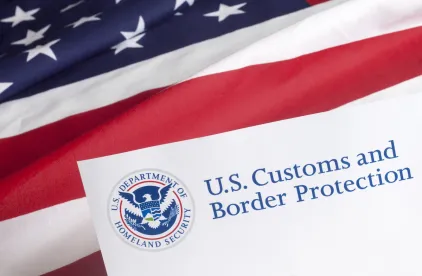Equipped with full funding, U.S. Customs and Border Protection (CBP) now looks to heighten enforcement of the Uyghur Forced Labor Prevention Act (UFLPA) with automotive suppliers squarely in sight.
U.S. President Joe Biden signed the UFLPA into law on December 23, 2021. The UFLPA established a rebuttable presumption prohibiting the importation of goods mined, produced, or manufactured, in whole or part, (a) in the Xinjian Uyghur Autonomous Region (XUAR) of the People’s Republic of China, or (b) by a party listed under the UFLPA (UFLPA Entity). The Consolidated Appropriations Act fully funded UFLPA implementation, so CBP must provide a timely briefing to the House and Senate Appropriations Committees on implementation of the UFLPA.
In follow-up, on January 26, 2023, CBP made a key announcement that to deploy UFLPA, CBP will provide an early enhanced warning through the Automated Commercial Environment. This early warning will indicate goods that may have been produced in XUAR or by a UFLPA Entity, and therefore, those goods may be excluded from importation into the United States. CBP is taking specific enforcement steps to identify, detain, or seize shipments subject to the UFLPA’s rebuttable presumption. Additionally, CBP declared in the UFLPA Region Alert, that starting March 18, 2022, importers of China-origin articles must declare to CBP the Chinese postal code of the manufacturer that produced the goods within the entry documentation presented to CBP.
Moreover, CBP previously focused UFLPA enforcement on silica-based products, cotton and apparel, and tomato products identified as high risk for connections to XUAR. However, this original focus may be rapidly expanding to include the automotive sector, as the recent December 2022, Sheffield Hallam University Report, Driving Force Automotive Supply Chains and Forced Labor in the Uyghur Region, names many automotive-related companies with ties to forced labor in XUAR. In particular, aluminum sourced from XUAR may become a high-priority material for UFLPA enforcement by CBP.
For flagged shipments, CBP will provide notice of enforcement action, which may include a detention notice, exclusion notice, or notice of seizure. Per the U.S. Customs and Border Protection Operational Guidance for Importers specific to UFLPA compliance, issued on June 13, 2022, importers must provide CBP substantiation of the absence of inputs subject to the UFLPA by presenting the following type of documentation, as further detailed within the guidance:
-
Due diligence system information
-
Supply chain tracing information
-
Information on supply chain management measures
-
Evidence goods were not mined, produced, or manufactured wholly or in part in the Xinjiang Uyghur Autonomous Region
-
Evidence goods originating in China were not mined, produced, or manufactured wholly or in part by forced labor
Ultimately, to rebut the presumption, an importer must provide “clear and convincing” evidence that the goods are not the product of forced labor for CBP to determine that the goods are beyond the scope of UFLPA and eventually release the shipment.
To minimize UFLPA enforcement risk, the following best practices are recommended to importers:
-
Establish and maintain a customs due diligence program
-
Carefully assess and mitigate XUAR-related supply chain risks
-
Be prepared to demonstrate compliance with documented due diligence that includes supply chain tracing and supply chain management measures
-
Be prepared to respond to CBP inquiries to demonstrate that goods are not mined, produced, or manufactured wholly, or in part, in XUAR or by a UFLPA Entity





 />i
/>i
